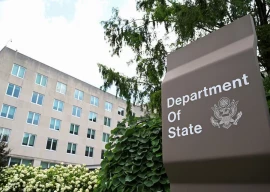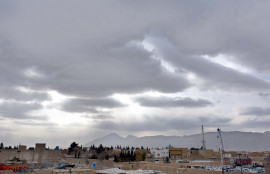
US intelligence officials have already admitted to failing to understand the Arab Spring movement, which overbalanced governments in the Middle East and North Africa. But a new book by CIA’s former deputy director Michael Morell, claims that the CIA had compounded those errors with optimistic assessments that the turbulence would prove devastating to al Qaeda.
“We thought and told policy-makers that this outburst of popular revolt would damage al Qaeda by undermining the group’s narrative,” Morell wrote in the book "The Great War of Our Time,” a copy of which was obtained by The Washington Post ahead of its release later this month.
Instead, “the Arab Spring was a boon to Islamic extremists across both the Middle East and North Africa,” he said.
“From a counterterrorism perspective, the Arab Spring had turned to winter.”
The acknowledgment represents one of the bleakest assessments of the CIA’s performance during that tumultuous period by an official who was in the agency’s leadership at the time.
Four years after the initial street protests in Tunisia that set off the Arab Spring across the Middle East and North Africa, al Qaeda and its progeny, the Islamic State, have gained Senior US intelligence officials failed to understand the Arab Spring movement, which overbalance governments in the Middle East and North Africa vast swathes of territory and strength in countries such as Egypt, Libya, Syria, Iraq and Yemen.
US officials said recently that they expect conflicts exploited by these extremists to persist for a decade or more.
The CIA declined to comment on Morell’s book, but US officials acknowledged that events had turned rapidly in favor of al Qaeda largely because the political movements that seemed promising at first have largely failed to materialise into effective new governments.
Morell's book follows his three-decade stint at Langley. However, he has concentrated mostly CIA's counterterrorism missions and its political aftermath — since the September 11, 2001 attacks.
In this, Morell defends the CIA’s use of torture during interrogation and is sharply critical of a multi-year investigation by the Senate Intelligence Committee which he claims that no evidence was discovered proving waterboarding and other harsh techniques produced significant intelligence.
This article originally appeared on The Washington Post


















COMMENTS
Comments are moderated and generally will be posted if they are on-topic and not abusive.
For more information, please see our Comments FAQ